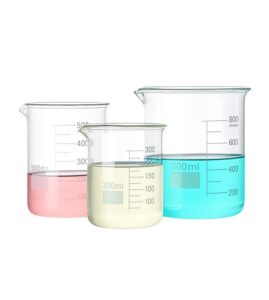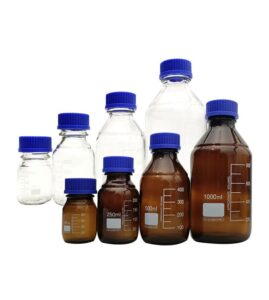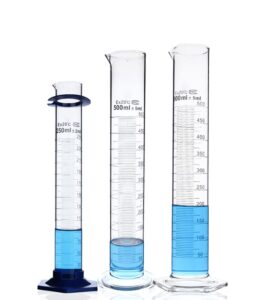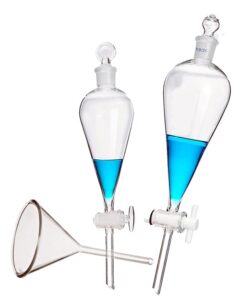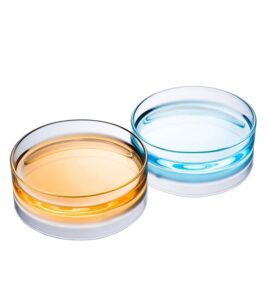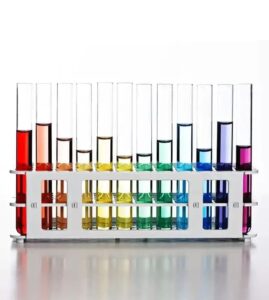Have you ever stopped to consider how the transparent, fragile material that adorns our windows and holds our drinks plays a critical role beyond its everyday uses? How does this seemingly ordinary material drive innovation in fields as diverse as agriculture, forensic science, and space technology?
Glassware, a cornerstone of scientific advancement, has applications that stretch far beyond the confines of laboratory benches. Its use in 15 different fields showcases the versatility and essential role of glassware in pushing the boundaries of knowledge and technology. This post delves into the surprising impact of glassware across various sectors, underscoring its significance in modern-day science and industry.
Let’s embark on a journey through the myriad ways glassware contributes to our world.
The Vital Role of Glassware in Agricultural Science Research
In agricultural science research, a key driver of modern agriculture, precision is crucial. Glassware, with its unique properties and accuracy, plays an essential role in this field. It is vital for seed and soil analysis, allowing scientists to assess seed health and soil composition with tools like glass microscopes and beakers. Additionally, in plant physiology and biochemistry, glassware facilitates the study of plant hormones and bioactive substances, using chromatography columns for substance purification and reactors to simulate plant biochemical reactions.
Beyond analysis, glassware’s precision is critical in biotechnology applications within agriculture, such as gene cloning and molecular biology experiments, where micropipettes and thermal-conductive glass tubes ensure experimental accuracy. Its durability, ease of cleaning, and corrosion resistance make glassware a cost-effective and reliable choice for agricultural research. As the field of agricultural technology advances, glassware’s role in fostering innovation and supporting modern agriculture’s growth becomes increasingly significant.
Precision in Environmental Monitoring
In environmental monitoring, glassware’s precision and unique properties play a crucial role in assessing and protecting environmental quality. Its high transparency enables clear observation of air, water, and soil samples, facilitating accurate preliminary analysis and optical measurements, such as spectrophotometry, to determine specific substance concentrations.
Glassware’s chemical stability and resistance to corrosion are essential for detecting chemicals like heavy metals and organic pollutants, ensuring the integrity and accuracy of analysis. Additionally, its role in sample preparation, including filtering and dilution, provides reliable samples for further analysis.
Moreover, glassware aids in physical measurements, such as collecting suspended solids in water and airborne particles, ensuring samples are representative and free from chemical reaction interference.
Its reusability and ease of cleaning not only offer cost-effective and environmentally friendly advantages but also ensure hygienic and safe monitoring practices. The application of glassware in environmental monitoring underscores its invaluable contribution to more accurate, reliable, and sustainable environmental protection efforts.
Forensic Science: Unlocking Mysteries with Glass
In forensic science, glassware’s unique properties significantly enhance the investigation and analysis of criminal evidence. Its smooth, easily cleaned surfaces ensure samples like blood, fingerprints, and residues are collected without contamination or damage. Glass pipettes and tubes, for example, allow for precise liquid sampling and secure storage, preventing sample deterioration.
Glassware also excels in the analytical phase, where its transparency, thermal stability, and chemical resistance are crucial for accurate chemical, physical, or biological analyses. This includes DNA integrity preservation and toxin detection, where glass instruments are essential for handling and analyzing samples.
Moreover, in legal proceedings, the clarity of glassware facilitates the objective and accurate presentation of forensic evidence, supporting the case’s arguments effectively. Glass containers and slides offer a clear view of evidence features and analysis results, boosting their persuasiveness in court.
Thus, glassware is indispensable in forensic science, providing essential tools for sampling, analysis, and evidence presentation, thereby supporting case investigation and justice.
Nanotechnology: Shaping the Future with Glassware
In nanotechnology, glassware is essential, providing precision in creating and analyzing nanomaterials. Glass instruments facilitate the accurate preparation of nanomaterials, allowing for controlled reactions essential for their development. Microfluidic chips made of glass enable efficient synthesis and separation, boosting the production of nanomaterials.
Glass components in high-resolution equipment, such as electron microscopes, offer clear views of nanomaterials’ microstructures, crucial for understanding their properties. Additionally, glassware is key in manufacturing and testing nanodevices, ensuring their precision and reliability through accurate molds, supports, and measurement tools.
With ongoing advances in nanotechnology, innovative glass materials are emerging, offering enhanced optical and mechanical properties for nanomaterials and devices. The role of glassware in nanotechnology, from material synthesis to device testing, is invaluable, continually supporting the field’s growth and innovation.
Powering New Energy Research
In new energy research, necessitated by growing global energy demands and environmental concerns, glassware plays a crucial role due to its unique properties. In solar energy, glass is essential in manufacturing solar panels, acting as a protective layer that allows sunlight to reach the cells while ensuring durability and stability. Glassware is also pivotal in analyzing the efficiency of solar cells, providing data for optimization.
Wind energy research relies on glass instruments for measuring wind speed and direction, crucial for designing efficient wind turbines. These instruments also help in assessing turbine materials for durability and efficiency improvements.
Beyond solar and wind energy, glassware is integral in biomass and geothermal energy studies, analyzing chemical compositions and environmental parameters to optimize energy extraction and utilization.
With the advancement of new energy technologies, the evolution of glassware continues, offering more possibilities through innovative materials that improve energy device performance. Glassware’s widespread application across various new energy fields highlights its indispensable role in supporting the transition to sustainable energy solutions.
Exploring the Depths: Marine Science Research
In marine science research, the indispensable role of glassware spans from sample collection to ecological and geological studies. Glass bottles and tubes, prized for their chemical stability, are key for gathering and analyzing seawater samples without contamination, allowing for precise evaluations of ocean chemistry, pollution, and microbial life. Microscopes with glass components offer clear insights into marine biodiversity and ecosystems, essential for understanding ocean life.
Moreover, glass instruments support marine geological research by enabling accurate measurements of seabed features and analysis of sediment and rocks, revealing the ocean’s geological history. The advent of new glass technologies, such as optical instruments, enhances the study of ocean optics and marine biology interactions, broadening research capabilities and increasing study accuracy.
Glassware’s comprehensive application in marine science highlights its critical contribution to exploring and understanding the ocean’s complexities. As technology progresses, glassware will continue to be a fundamental tool in advancing oceanographic research.
The Sky is Not the Limit: Glassware in Space Technology
In space technology, glassware is essential, supporting human exploration beyond Earth. Specialized glass is used in spacecraft for windows and observation ports, offering durability against radiation, thermal shock, and pressure, crucial for astronaut safety. Additionally, glass instruments, such as sensors and measuring devices, monitor vital spacecraft conditions, ensuring mission success.
Glassware is also key in conducting space experiments under microgravity, where its precision and corrosion resistance are invaluable. It supports biological and physical research, from culturing cells to measuring physical phenomena.
Moreover, in space communication and navigation, glass fibers enable reliable, high-speed data transmission, while glass-made navigation devices like gyroscopes and accelerometers provide accurate measurements for spacecraft guidance.
As space technology advances, the role of glassware expands, with innovations in glass materials enhancing performance and opening new exploration possibilities. Glassware’s comprehensive use in space technology, from construction and research to communication and navigation, highlights its critical contribution to extending humanity’s reach into space.
Diagnosing Diseases: The Role of Glassware in Medicine
In medical diagnostics, glassware is essential for its precision and reliability, enabling accurate disease identification and treatment planning. It plays a crucial role in clinical chemistry for sample analysis, serology tests, and biochemical indicator assessments like glucose and lipid levels. In pathology, glass slides and coverslips are indispensable for preparing and examining tissue samples, aiding in disease diagnosis through detailed cellular observation.
Additionally, in microbiology, glass instruments support the culturing and isolation of pathogens, essential for identifying infectious diseases. Advances in medical technology have introduced sophisticated glassware, such as flow cytometers and fluorescence microscopes, enhancing diagnostic accuracy by allowing detailed analysis of cells and molecules.
Glassware’s comprehensive application in diagnostics underscores its importance in medical science, contributing to the advancement of healthcare and diagnostics precision.
Unearthing the Past: Glassware in Archaeology
In archaeology, glassware is crucial for exploring human history and artifacts. Tools like glass magnifying glasses and microscopes enable detailed examination of artifact textures and marks, essential for determining their origins and functions. Laboratory analyses rely on glassware for chemical composition studies of artifacts, using beakers and tubes for precise measurements and extractions. This analysis helps in understanding the materials and techniques used in artifact creation.
Additionally, glassware plays a vital role in radiocarbon dating, assisting in accurately dating artifacts by measuring carbon isotope levels. The introduction of advanced glass instruments, such as spectrometers, further enhances the depth of archaeological research, providing detailed insights into the composition and structure of findings.
Overall, glassware’s application in archaeology is indispensable for both fieldwork and laboratory analyses, offering valuable insights into the composition, age, and technology of past civilizations, and continuing to support the advancement of archaeological research.
Geology: Uncovering Earth’s Secrets
In geology, glassware’s unique properties significantly aid in studying the Earth’s materials, structure, and history. It is vital for precise mineral and rock analyses, allowing clear observation of microscopic structures and ensuring sample purity during chemical analyses. Glassware is also essential in geochronology for accurately measuring radioactive elements, crucial for dating geological events. Moreover, it serves to protect sensitive sensors used in geological exploration, maintaining their accuracy in diverse environments. Through these applications, glassware supports the uncovering of Earth’s secrets, playing a critical role in various geology branches and ensuring ongoing advancements in understanding our planet’s past and present.
Innovations in the Food Industry
In the food industry, glassware serves as a critical tool across various stages, from raw material inspection to product development and quality control. Its unique advantages offer precise and reliable support, ensuring the quality and safety of food products. Glass instruments such as test tubes and beakers are used for sampling and analyzing raw materials, confirming their compliance with quality standards. During production, glass devices like flow meters and thermometers monitor key parameters, maintaining process stability and product quality.
Moreover, in the development of new food products, glassware enables researchers to experiment with new formulas and processes, optimizing taste, nutrition, and safety. It also plays a crucial role in food safety testing, detecting contaminants like pesticides and heavy metals, responding to increasing consumer concerns over food safety.
Glassware’s application in the food industry is comprehensive, supporting everything from ingredient verification to the launch of new products and ensuring food safety. As the food industry evolves with technological advancements, glassware will continue to play a vital role, driving the industry towards safer, healthier, and more efficient practices.
Cosmetics Development: The Beauty of Glass
In the innovative field of cosmetics development, glassware plays an indispensable role by offering precise and reliable tools that fuel industry advancement. Widely used for raw material selection and property testing, glass instruments like test tubes and beakers allow for accurate measurement and evaluation of ingredients through various tests, such as solubility and stability, laying the groundwork for formula optimization.
Glassware also facilitates the fine-tuning of cosmetic formulas, exploring the interactions between different components to find the ideal combination while ensuring product stability and safety. Moreover, it’s crucial for efficacy testing, such as skin permeability and moisturization tests, providing key insights into product performance on the skin.
The use of glassware not only supports in-depth understanding of cosmetic preparation and properties for quality control in production but also fosters collaboration between research and manufacturing, driving rapid industry development. Glassware’s precise performance makes it a vital asset in cosmetics R&D, supporting continuous innovation and progress in the beauty industry.
Environmental Engineering: Cleaning Up with Glass
In the critical field of environmental engineering, glassware emerges as an indispensable tool, facilitating efforts in air, water, and soil protection and management. Its unique attributes provide precise and reliable means for environmental monitoring, essential in assessing pollution levels and supporting remediation efforts. For instance, glass sampling bottles are crucial for collecting air and water samples, enabling detailed analysis of pollutants. Optical instruments made of glass, such as spectrophotometers, precisely measure pollutant concentrations, offering data for informed environmental decision-making.
Moreover, in wastewater treatment, glassware plays a pivotal role in monitoring influent and effluent quality to ensure treatment standards are met. Glass reactors and distillation units are commonly used in chemical reactions and substance separation processes, aiding in the removal of contaminants to improve water quality.
Glassware also contributes significantly to solid waste management by supporting various tests to evaluate waste characteristics and treatment efficiency, thus facilitating waste categorization, treatment, and resource recovery. Beyond its technical applications, glassware aids in environmental education and advocacy, raising public awareness and understanding of environmental issues, thereby promoting a culture of conservation.
Overall, glassware’s extensive application across environmental engineering underscores its value in providing technical support for environmental monitoring, wastewater treatment, and solid waste management, furthering efforts towards a cleaner, healthier environment.
Energizing the World: Glassware in Energy Development
In the critical arena of energy development, which underpins modern societal growth, glassware stands as a fundamental tool in scientific research and experimentation. Its unique properties provide precise measurement and reliable analysis methods, propelling advancements in energy technologies. From the exploration of oil and natural gas, where glass instruments are used for in-depth geological analysis and fluid property measurement, to the burgeoning field of renewable energies like solar and wind power, glassware plays a pivotal role. It enables accurate evaluation of solar panel efficiency and wind speed measurements, guiding the design and optimization of renewable energy solutions.
Moreover, in the development and utilization of biomass energy, glassware facilitates the analysis of material composition, supporting the transformation of biomass into usable energy. Glass instruments are also crucial in the research of energy storage technologies, a growing need alongside the rise of electric vehicles and smart grids. They assist in the development of new battery materials and capacitors, offering precise data for technological advancements.
Glassware’s widespread application across various sectors of energy development not only supports the ongoing quest for efficient and sustainable energy solutions but also ensures the continued innovation and growth of energy technologies. As the demand for energy evolves and technology advances, glassware will remain an indispensable ally in energizing the world, driving forward the innovations that fuel our future.
Information Technology: The Role of Glass
Glassware’s role in the fusion of information technology (IT) and scientific research is reshaping how experiments are conducted and analyzed. By embedding sensors into traditional glass instruments, researchers can monitor experiments in real-time, directly from their digital devices, enhancing precision and reducing manual errors. This integration significantly boosts experimental efficiency and accuracy.
Moreover, glassware aids in data analysis and visualization within IT, allowing experimental outcomes to be presented in a more comprehensible format such as graphs and charts. This not only makes the data more accessible but also enables the extraction of valuable insights through sophisticated data analytics.
The development of virtual labs marks another innovative application, utilizing virtual reality to create realistic lab simulations. Here, virtual glassware performs experiments, minimizing costs, resource waste, and safety risks associated with high-risk experiments.
Additionally, this blending of glassware with IT is catalyzing interdisciplinary research, encouraging collaborations that span biology, physics, and beyond, leading to more holistic and profound studies.
As we advance, the integration of glassware in IT continues to transform scientific research, heralding a future ripe with innovative tools and methodologies that promise to push the boundaries of what’s possible in research and development.
Conclusion
In wrapping up, let’s acknowledge the transformative power of glassware in pioneering advancements across diverse fields. This journey invites us to further innovate, explore, and push the boundaries of what’s possible. Embrace the clarity and precision glassware introduces into our endeavors. Together, let’s champion the role of glassware in shaping a brighter, more informed, and sustainable future. The potential is limitless; let’s unlock it with every experiment, discovery, and breakthrough.


